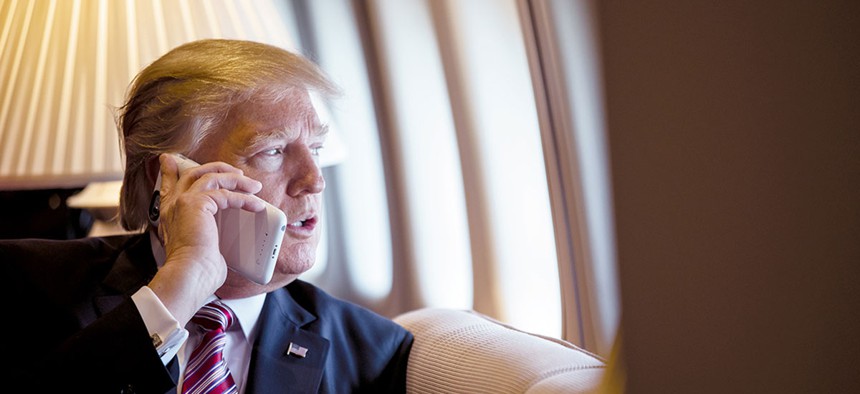
Shealah Craighead/White House
Trump’s Desire For Free Time In His Schedule Actually Makes Lots of Management Sense
Leaders need time to think.
There’s plenty of reasons to mock President Donald Trump’s management style. But his desire to have free, unstructured time in his schedule shouldn’t be one of them.
A New York Times article (paywall) about Reince Preibus compared the White House chief of staff to a pre-school teacher who, as he plans Trump’s day, “modulates structured work time with the slack periods Mr. Trump craves.” Predictably, the line drew scorn on social media.
I'll believe that Trump is growing into the presidency when his staff stops talking about him like a toddler. https://t.co/K2tgucTlzn pic.twitter.com/8chvMtWfbP
— Daniel W. Drezner (@dandrezner) May 5, 2017
But free time is a valuable resource, and effective leaders know to build it into their schedule. Unstructured time gives managers the freedom to make spontaneous calls or visits, to address unexpected issues, and perhaps, most importantly, time to breathe. “Part of the key to time management is carving out time to think, as opposed to constantly reacting,” according to LinkedIn CEO Jeff Weiner (paywall).
Even the most carefully scheduled leader can have their day upended by unexpected events. In a study of how CEOs in India use their hours (pdf), about a third of their working week was devoted to unplanned issues and events. In a tightly scripted day, finding time to deal with emergencies can result in canceled meetings and postponed decisions, creating a cascade of disruption through the organization. Building in free time makes much more sense.
If leaders hope they’ll just stumble into time to contemplate their company’s future, it will never happen, given all the demands on their attention. Blocking out the time is the only way it will happen. As Henry Mintzberg, the pioneering scholar of how managers spend their day, noted, “Free time is made, not found.”
NEXT STORY: Sustaining the SES in Difficult Times






